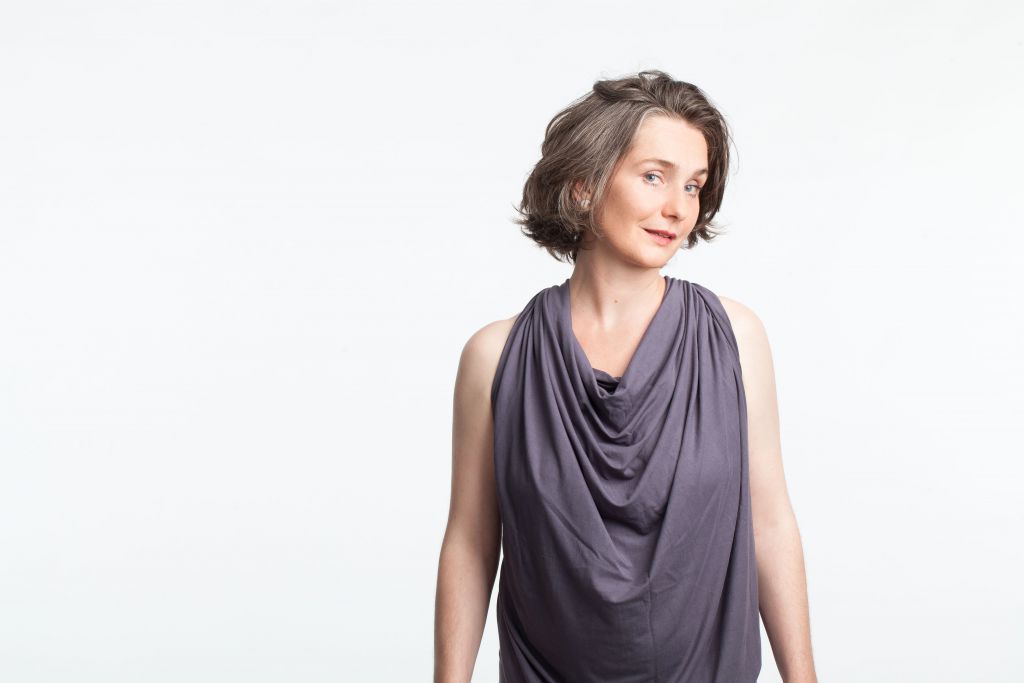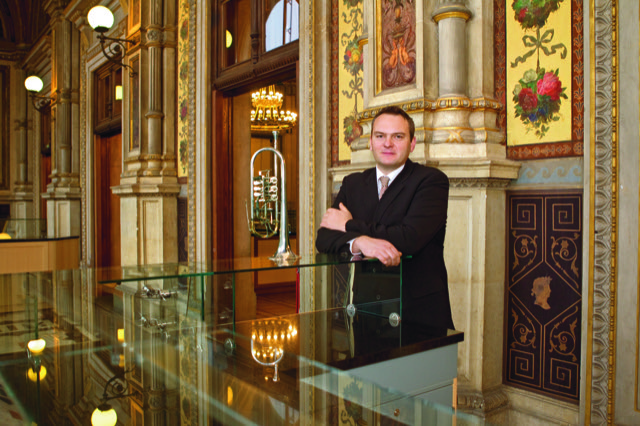Maria Gstättner-Heckel and Martin Mühlfellner, both of whom teach at the Leonard Bernstein Department of Wind and Percussion Instruments, relate their experiences with COVID-19.
How seriously had you taken this illness prior to being infected with the coronavirus?
Maria Gstättner-Heckel (MGH): Initially, I’d found it all a bit suspect. But in March 2020, my husband and I reacted very fast: we took our son out of school and retreated to our house in Burgenland. At first, I thought that everything would blow over within two or three weeks. But even so, we complied with the mitigation measures and took them very seriously.
Martin Mühlfellner (MM): I got infected right away, during the first wave, so I hadn’t really had any time to think about things beforehand. On 16 March 2020, the day Austria’s initial nationwide lockdown went into effect, I was already in bed with serious symptoms.
The problem is, I think, that it’s difficult to understand the effects of this illness if neither you nor anyone close to you has had it. (Martin Mühlfellner)
How did you get infected?
MGH: The unfortunate truth was that it was due to other people’s lack of consideration. Our middle daughter was the first of us to come down with COVID, in autumn 2020. She was 16 years old at the time, and she ended up spending several days with a very high fever. It really shook me to see such a young, strong girl get hit so hard. But even so, we didn’t get infected at that point. We’d been quarantining for 10 days, and then my husband had to go to a rehearsal at the theatre. Some of the people there weren’t adhering to the safety measures, one of them infected my husband, and he then gave it to me.
How did you react to that?
MGH: I was really furious. We’d complied with our quarantine and all the other measures. The police had even come by three times to check on us. And then, my husband got infected at that rehearsal. It just made me so angry, how careless some people can be.

Mr. Mühlfellner, do you have any idea how you got infected?
MM: We were on tour with the Vienna Philharmonic in Munich—and suddenly, everything got cancelled. Organising our trip back turned out to be extremely complicated; flying wasn’t an option. So I decided to travel home by rail. On the train, there was this guy sitting in front of me who coughed for four hours straight. It was so unpleasant to listen to that I had to put on my headphones. Three days later, I started experiencing symptoms myself.
Weren’t you already aware of the danger when it happened?
MM: No, nor did any of my colleagues in the orchestra really know what was going on. Nobody could comprehend why our tour had suddenly gotten called off. And at first, everything really had been okay; it was only three days after that contact on the train that I started feeling unwell. From that point, it wasn’t long before I’d developed a fever and severe headaches. It felt like my head was going to explode.
What did you do then?
MM: I dialled 1450 something like ten times a day, but I never got through. And all of the doctors I know told me they couldn’t help, either. I was advised to just stay home as long as possible and take painkillers. The worst thing about it all was that I could hardly breathe. I was one step away from calling an ambulance. I remember lying in bed, thinking: “They’ve got to come for me now. I just can’t take this anymore.”
What course did your illness take, Mrs. Gstättner-Heckel?
MGH: For me, it began with diarrhoea, nausea, and headaches. And then there was this two- or three-day phase where I actually didn’t feel all that bad. But on the fifth day, I lost my senses of taste and smell. I actually never ended up having any problems with my lungs; instead, COVID went for my nervous system. I felt extremely faint and tired but could hardly sleep. And on top of that, I was no longer able to feel my body—which is a terrible state that’s kind of impossible to describe. I didn’t understand how there could be nothing that would help me. After spending a few initial days frozen in shock, I was lucky enough to be able to work together with a homeopath over the phone, who helped me arrive at a suitable form of therapy. I was also recommended some further alternative medications by a doctor I know.
How did the situation affect you psychologically?
MGH: Quite severely—it was really, really awful. But after another four to five days, my ability to taste and smell things did gradually start returning. So the really bad phase lasted between ten and twelve days. Afterwards, I was still feeling incredibly faint and weak. At that point in time, my Ct value was still high enough to be contagious. So I stayed at home and waited for it to go down. Today, I doing fine with no long-term effects.

How did COVID-19 end up affecting you, Mr. Mühlfellner?
MM: I’m by no means completely out of the woods. I’m still seeing a pulmonary specialist for treatment, and I even went out and got an Apple watch that measures the oxygen content of my blood. The highest value I’ve ever managed has been 94%. That’s up from a maximum of just 85% at my first examination in July. On my lung CAT scan, you can clearly make out three fibroses—in other words, scar tissue. I went back for a check-up this March, exactly one year later. It’s gradually improving, but I’m still not where I should be.
So that means you’ve been unable to do your job as usual for the past year?
MM: Exactly. I’m a professional trumpeter. We were scheduled to play Gustav Mahler’s 6th Symphony at the Salzburg Festival, and I absolutely wanted to do the performance to see whether things would work. I got through it, but not well. It was an extremely unpleasant experience for me, one of the most difficult concerts I’ve ever played. I just wasn’t in full command of my abilities. So the after-effects of this infection have remained with me to this day. It’s true that things are going better, now, and I am back on the job—but I’m not where I want to be.
It needs to be clearly stated that denying the existence of this illness does great harm to others. Mask-wearing helps. So let’s please put them on! (Maria Gstättner-Heckel)
How did the people around you react to your illness?
MM: I never actually received an official COVID-19 diagnosis. I only received confirmation of it following an antibody test I did with the orchestra in June. I was the first among us to test positive. It’s interesting to experience how it is to suddenly become an outsider. Honestly, that was hard to deal with. And there was also some talk to the effect that it was my own fault I’d gotten sick, even though I’d done nothing wrong.
MGH: I can well imagine how it must feel to be viewed as someone who’s absolutely untouchable. In my own private circles, we did still try to help each other. Several of our friends had already had it, so we were able to exchange notes.
MM: There’s also the opposite view, where people don’t recognise the threat to begin with. So I think it’s really important to point out that this absolutely isn’t just a flu. The problem is, I think, that it’s difficult to understand the effects of this illness if neither you nor anyone close to you has had it. Our neighbour, who was 78 years old, died of COVID-19—not “died with”, but “died of”. And my wife’s uncle died after spending six weeks in an intensive care unit. That hit us really hard. And the whole thing’s unfortunately even led to us losing some friends.
MGH: With some people, there’s just no basis for conversation left if they just keep on denying the existence of this illness when you’ve already had it. Or if it’s hit someone close to you like a colleague of my husband’s, who died of COVID-19 at age 60. Normally, I’m an unbelievably positive person—and I even have a tendency to put an undue gloss on things. But this is something you’ve just got to take seriously, something that really can’t be reasoned or euphemised out of existence. I wouldn’t wish the experience I had on anyone. So it needs to be clearly stated that denying the existence of this illness does great harm to others. Mask-wearing helps. So let’s please put them on!
What would you have those around you know?
MGH: People should protect themselves and others. This illness really exists and can do awful things to you. And we’re also responsible for the people around us, after all. We can contribute to getting this pandemic under control by putting on our masks and getting tested. So I’d ask everybody to take this illness seriously. Because the more we hold together, the better we’ll be able to master this situation.
MM: It would be important to me that people don’t waste energy looking to have their own opinions confirmed on social media. Many folks are totally unaware of how they’re living in a bubble. So my appeal would be to speak with people directly. I also want people to put on their masks, get tested regularly, and keep their distance—which will make a huge contribution to beating this illness.

